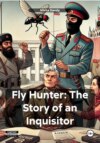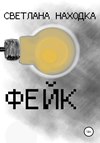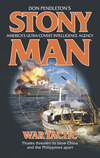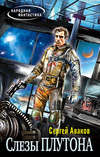Czytaj książkę: «Fly Hunter: The Story of an Inquisitor»
Preface
Warning: This book contains graphic descriptions of violence, brutality, and sexual exploitation. Sensitive readers are advised to proceed with caution.
________________
Fly Hunter: The Story of an Inquisitor is a gripping and unsettling exploration of the dark corners of human nature and the corrupting influence of absolute power. This novel delves into the life of Aman-Jalil, a ruthless inquisitor who navigates a world where cruelty and betrayal are the norms.
The protagonist, Aman-Jalil, rises from a childhood marred by poverty and violence to become a key figure in a brutal regime. Serving under Iosif Besarionis, he ascends to the head of the NKVD. In this role, Aman-Jalil wields immense power with ruthless efficiency, orchestrating a series of brutal killings disguised as suicides, manipulating those around him, and spreading fear to maintain control.
Aman-Jalil's early life is filled with scenes of violence and despair, shaping him into a person who finds solace in an unusual and macabre hobby: hunting flies. This pastime becomes a metaphor for his later actions as he manipulates, betrays, and destroys those around him with impunity.
Throughout the novel, Aman-Jalil's cunning and ruthlessness are on full display. He manages a network of brothels with Bahar-Gani, exploiting underage girls and further entrenching his power. His interactions are marked by a cold-blooded efficiency as he eliminates enemies and consolidates his control through fear and intimidation.
This novel is not for the faint-hearted. It presents a stark, unflinching look at the depths of human depravity and the brutal realities of life under an oppressive regime. Through Aman-Jalil's journey, readers are invited to witness the harrowing effects of power, the corrupting influence of absolute control, and the devastating consequences of a world without compassion.
Prepare to be captivated and horrified by Fly Hunter: The Story of an Inquisitor, a tale that will linger in your mind long after you've turned the last page.
Chapter 1: Hunting Flies and the Chief Inquisitor
9 January 1905 entered history as Bloody Sunday. On this day, the country experienced one of the most tragic and brutal episodes in its history. In the center of the capital, about 140,000 working-class representatives gathered to peacefully express their discontent and demand better working and living conditions. But their hopes for justice and understanding were cruelly crushed.
Government troops opened fire on the unarmed demonstrators. The streets turned red with blood, and the air was filled with cries of pain and despair. Up to a thousand people were killed, and another two thousand were injured. This act of brutality shocked the entire country and left a deep scar in people's hearts. Families lost their loved ones, children became orphans, and widows found no solace in their grief. Hundreds of the dead lay on the pavements, their bodies becoming a silent indictment against the cruelty and injustice of the authorities.
However, this story did not end with these horrific events. In the book dedicated to the fate of the main character, the events unfold even more tragically. Against the backdrop of Bloody Sunday, even more terrible deeds occur. Thousands more are added to the number of the dead, killed in subsequent repressions. Dozens of women become victims of violence, turning into silent witnesses of human cruelty. Brothels with underage children thrive, serving as grim reminders of how low society can sink in its inhuman quest for power and wealth.
At the center of these events is a little boy, Aman-Jalil, whose path was overshadowed not only by poverty and deprivation but also by the horrors of human cruelty. His life unfolded amidst poverty and vice, where people seemed to have forgotten about kindness and compassion. Each day was a struggle for survival, and every person around him could be both a friend and an enemy.
Aman-Jalil grew up in this world, where cruelty and violence had become the norm, and human life was valued no more than that of an insect. He witnessed how fates were broken, how meanness and betrayal became the norm, and kindness and honesty—the exception. His childhood was filled with scenes of violence and despair that forever left a mark on his soul.
And so, amidst all these tragic events, when the world around him seemed hopeless and cruel, he found solace in his strange hunt.
A plump green fly crawled along the sun-warmed windowpane near the communal restroom at the end of the gallery, stopping occasionally to groom itself. Its bulging eyes closely monitored the strange bipeds, enemies like birds but unlike them, creating an environment for flies with their excrement, food scraps, and piles of garbage. The child remained still, his black, bulging eyes also fixed on the fly, mesmerizing it with an imploring gaze: "freeze, freeze, freeze, freeze"!
And the fly froze. Its front legs flicked, grooming its head, while its hind legs, alternating with the front ones, tended to its abdomen. Thousands of cholera and other dangerous epidemic microbes flew into the air.
Aman-Jalil breathed them in, but even the cholera microbes died as soon as they were sucked into the hump of his nose by the flow of air. Two fingers of the seven-year-old boy's left hand firmly gripped one end of a thick rubber band, while two fingers of his right hand stretched the rubber band across the other end, and his right eye aimed for the target. "In the head, only in the head, dark blood will splatter instantly, short convulsive leg movements, and it's all over … Or maybe in the belly?"
The restroom door clanged open, almost hitting Aman-Jalil. A young man emerged, already completely gray. Spotting Aman-Jalil wiping blood off the rubber band with his fingers, he cried out in despair, just as the fly buzzed:
– Hunting again, you scoundrel? Got nothing better to do?.. Go to the yard, play ball or 'frobbulate', you're learning to kill, let your hands wither…
The man tried to cuff Aman-Jalil, but he dodged and shot back:
– Bam!.. He's going mad…
– Wazir!.. What's gotten into the boy? – shouted the elderly, stout Aman-Jalil's grandmother from the communal kitchen. – He comes out of the toilet without washing his hands, spreading germs, bullying the little one. Mind your own business, everyone's poking their noses where they shouldn't, have your own kids, then deal with their "slaps"… All sorts of strays come here, making decisions…
And Aman-Jalil piped up:
– Half-baked fool!..
Wazir shook his fists in the air and stormed into the communal kitchen, shouting at Aman-Jalil's grandmother:
– Yes!.. "Half-baked fool"!.. They didn't kill me, despite my pleas. They left me to suffer, left me not to live, but to suffer and remember that road, as dusty and even as this glass, where my Anush fought like a fly, humiliated in front of me. They gutted her with a dagger while I was tied to a pole above her, beaten to make sure I didn't look away, forced to watch, and they laughed, oh how they laughed… Yes, I will never have children… You, old woman, think about whom you are raising, think before it's too late…"
Wazir staggered along the veranda, murmuring, "cruel world, cruel world, trapped in this sticky web, all I see, I crave sunlight, sunlight! And, crucified, I shouted at the sun: 'I hate you!'"
Aman-Jalil's grandmother theatrically twirled her finger by her temple, signaling to Wazir that something was not right with him. Meanwhile, Aman-Jalil, picking his nose, chuckled nastily…
"If the world hates you, know that it hated Me before it hated you. If you were of the world, the world would love its own; but because you are not of the world, but I chose you out of the world, therefore the world hates you. Remember the word that I said to you: 'A servant is not greater than his master.' If they persecuted Me, they will also persecute you…"
The sun shone brightly. The city lazily scattered houses along the mountain slopes, clumsily stitching crooked streets between them, generously green in the center and bare, dirty on the outskirts. Blatant poverty neighbored ostentatious luxury, palaces encircled the old town where sunlight struggled to pierce the yards and avoided rooms without windows altogether. The scent of dampness hung over everything: sparse furniture, patched clothing, on the bodies of those who lived here, and it seemed, even on their thoughts… And the palaces, in turn, surrounded miserable hovels where five or six people lived in each room, where children, giggling during morning play, shared experiences glimpsed and overheard from parents and older siblings. These homes supplied beautiful bodies of young prostitutes to the palaces and thieves and robbers to prisons, for minds corrupted from childhood were difficult to steer toward good deeds, and the world of thieves, like the world of luxury, was ensnaring. Between the two criminal poles lay the world of toil, the world of hardships and concerns, occasional bright joys, unswerving and mercenary love, friendship and betrayal, business and careers, kindness and envy, hatred and cruelty, loyalty, forgiveness, and revenge. Men went to work in the morning, factories and workshops awaited them, women headed to the market, thin dark-spotted streams of mothers and wives, sisters and brides, carrying fresh greens and fruits, vegetables and dairy products in huge baskets. Poachers entered the yards offering black caviar and red fish, pheasants and small birds, all at such affordable prices that people forced to economize snatched up all the goods brought in within five minutes, though they knew perfectly well they were buying stolen goods. And this duality lay over everything: parents lied to children, children lied to parents, the government to the people, the people to the government, and truth became entangled in this labyrinth of lies and deceit, despairing to see the light of truth. The natural law of survival and selection cast aside the weak, the naive, those suffering, while the kind and compassionate received evil or mockery at best for their kindness, cruelty, using them mercilessly for their own purposes and discarding them like unwanted junk: the peel of a peeled orange, a broken coarse porcelain plate smashed into small pieces… But if an antique porcelain plate broke, it was carefully glued back together and prominently displayed, boasting its imperial crest, as though joining the royal family, feeling exceptional… This feeling was indomitable once it appeared: infected by it, one sought others similarly afflicted… just as addicts recognize each other by the gleam in their eyes, by a particular, uniquely theirs gaze, by chapped lips. The union of the exceptional was ruthless in its invulnerability, and only a similar union of the exceptional could destroy it. The city, like Chronos, devoured its children, yet no Zeus had yet arisen to cast it into Tartarus.
"Now the earth was formless and empty, darkness was over the surface of the deep…"
From the tambour, through the slightly ajar door, a small, chubby man watched with interest as Aman-Jalil occupied the empty reception area. With the second door closed, the tambour created a semi-darkness from which one could easily observe all those waiting for their appointment while remaining invisible themselves… Waiting and catching up, waiting and catching up! This was the hardest part of life, where everyone was tested, and few mastered the art… Aman-Jalil mastered it.
He calmly watched a fly buzz annoyingly over his head, but his hands, lying undisturbed on his knees, tightly gripped the half-stretched rubber band with his fingers. Similarly, from the tambour, the provincial governor Ahmed calmly observed: "how old is he? Twenty-five? Or older? Or younger? I must see for myself… why is he so carefully examining the reception area?"
The fly darted several times towards Aman-Jalil's prominent nose, but the young man remained unperturbed, not flinching. However, a slight exhale caught the fly off guard, causing it to hesitate and ultimately land on the sweaty, faintly fragrant nose, which smelled slightly of pleasant rot, choosing it as a suitable spot for reflection on the nearby wall.
Aman-Jalil turned just a few degrees so carefully and flexibly that the fly did not notice his movement, and by the time it did, it was too late to escape; a precise strike flattened its head against the wall. The fly twitched a few times and fell to the floor, behind the bench.
– "Did you hit it?" asked the provincial governor with interest through the crack in the door.
– "In the head!" replied Aman-Jalil through the crack. "And who are you: a genie or a gnome?"
– "I am the one whom everyone listens to in semi-dark silence… Do you know such a person?"
– "No, we didn't cover that…"
– "We did, you just didn't learn the verses well…"
Aman-Jalil remembered reading in class:
– "I remember a wonderful moment, Before me you appeared, Like a genius of pure beauty, Like a fleeting vision…"
– "On the contrary only," noted the teacher aloud, though he intended to say it to himself.
Immediately, Aman-Jalil started again:
– "I remember a wonderful moment, Before you I appeared, Like a fleeting vision…"
And he stumbled, feeling he had made a mistake. Kasim, the know-it-all, sitting in the front row, calmly finished for Aman-Jalil:
– "With a humped nose and a pig…"
The classroom buzzed. Suddenly, Aman-Jalil wished intensely that Kasym would turn into a fly for just a minute…
And Kasym did become a fly, but no matter how much Aman-Jalil swatted at him with the rubber band, it bounced off Kasym as if from Milanese armor. Aman-Jalil futilely chased after Kasym. When he grew tired of the pursuit, Kasym fluttered out the window, waving a goodbye with his tiny paw at Aman-Jalil… Once again, the class erupted in uproarious laughter at the failure…
The teacher restored order with a wave of his hand:
– I can confidently predict one thing for you: you will never be a poet; you have absolutely no feel for poetry… Remember when you once read: "…and her eyes clicked shut, and she snapped her fingers"…
– "My grandmother used to curse: 'You won't study, you'll either become a dervish or a poet, or some kind of bandit,'" Aman-Jalil thought. "They're all pursued, laughed at, mocked, even killed… If I ever need it, Kasym will write for me"…
Ahmed swung open the reception door wide. Seeing the deputy, Aman-Jalil straightened up in a "stand at attention" posture and "eyed the boss."
– Come in! – commanded Ahmed.
Aman-Jalil, marching as if on parade, entered the office and froze. Ahmed carefully closed the door behind him, looked satisfied at the stunned Aman-Jalil, and sat down at the desk.
The beauty and luxury of the office overwhelmed Aman-Jalil: black and red wood, handwoven carpets, Anatolian, walls adorned with paintings in gilded frames, gold and silver statuettes, ashtrays, inkwells… everything gleamed, sparkled… mesmerized.
– Come here!…
Aman-Jalil took two steps and froze again out of deference.
– You may sit down!…
Aman-Jalil timidly perched on the edge of the chair and glanced at Ahmed. Ahmed was barely visible behind the desk, but his bulging eyes inspired fear.
– Listen!…
– I am all ears, teacher!
– Who are you?…
– Your servant, teacher!…
– Are you already a member of our party?…
– Disciple!…
– Who recommended you, besides Ismail Pasha?
– My uncle, Gyaurov…
– Not our man… Do you know anything about him?… Something…
– You always know everything about relatives, or almost everything… What do you want to know?
– After… Do you want to become my man?
– I dream of it!
– And can you act like a fly?
– I can, teacher!
– In the head?
– Wherever you say!…
– And… when I say… Remember: initiative is punishable…
– I don't know what that is, teacher.
– Do nothing without orders…
– As you say, so it will be.
– As it will be, so I will say…
The old spider looked at the young man searchingly: "His jaws are still weak, but they will become steel, and I will forge them," he thought. "My clan needs fresh blood, and he's ready for anything… Everyone beneath him is mere flies!"
Aman-Jalil gazed at Ahmed with devotion and determination. "Here's the center of the web, where he will strive, where all threads are held and all signals known, and the main prey to him, the center," he thought, but in his eyes read: "I am loyal, like your hand, foot, so loyal that—if I'm gone, it'll hurt you as much as if your hand or foot were amputated"… He knew a few more foreign words: condom, impotent, pederast, gonorrhea, syphilis, cosmopolitan, agent, spy, career, boss, chief, head honcho, beefsteak, stuffed cabbage, kasha Guryevskaya… "Maybe I should throw in something else for Ahmed," Aman-Jalil pondered. "He'll understand right away that I didn't just arrive from the village yesterday"…
– Listen and remember, no need to write anything down: take a car with a driver, head to the Kalanvale district-vilayet, where my enemy rules everything, writes about me to Iosif Besarionis himself in the capital, estranges my father from the entire world, all nations and peoples, the leader and teacher from historical deeds. The great commander, whose toenail all the Caesars and Napoleons combined are not worthy to stand near, is forced to waste precious time not thinking about how to defeat all enemies, but on dirty accusations, where there's no more truth than hydrogen in the air…
Ahmed fell silent, staring intensely at Aman-Jalil, pondering: "Does the Messiah find it interesting, having descended upon our sinful, shit-stained planet, that I ordered the spring wheat planting a month earlier, and the cotton planting half a month later, that my own sheep graze alongside the state's, and if my sheep perish, they are forever listed in the state's records… Does the Universe care to know that each position has its own tariff? Of course, you fool, don't know that word. Must I give away a lucrative position just for pretty eyes? Yet for pretty eyes, I award positions. My seventy-eighth wife received a country estate in the reserve, and her brother became the chief forester. True, he sells timber, exterminates game, young when he strolls, but are such trivialities not for the ears of the pillar of the universe…"
Ahmed stepped away from the table, approaching Aman-Jalil. The latter tried to rise from his chair, but Ahmed placed a hand on his shoulder, urging him to stay seated.
– "I'm telling you all this so you appreciate my trust. The details, they'll tell you on site in detail. Maybe even reveal more. I myself don't know much, and from the emir's palace, they won't inform… Funny?" Ahmed suddenly barked.
– "Sad, boss, that a scoundrel like me intrudes on your trust. Such villains should be killed, like dung flies," replied Aman-Jalil.
– "I'm not allowing killing yet. The villain has a 'hairy hand' in the capital, and at the emir's palace… You must, you simply must gather 'compromising material' on him."
– "What's 'compromising material'?"
– "'Compromising material'—some dark deal, he's not holy, but if he is, find such a deal with tar, so it won't wash off till death, understand?"
– "Alright, teacher. If not that, then that!"
– "What's your education? Higher?"
– "Incomplete secondary…"
– "Parties need fighters, not specialists. And if specialists, then special: 'specialists in life's collisions.' Don't bother recalling, I don't even know the meaning of that word… Did you learn to shoot in the army?"
– "Arif's marksman… badge in my pocket."
– "Wear it proudly. You've earned it."
– "Boss, maybe it's better for me to go to the villa in the province? I'll be your coachman: box of grenades, box of peaches, box of grapes, figs… your kids can have their 'milk'…"
– "Coachman—it's not dignified. No, driver in rye, Mr. Mauser on the side… And the car has more space; I allow myself a few things too… There are enough coachmen in the area. Let everyone think you're high-ranking; people will assume you can take down the district chief and come to you with complaints. Support them, and then we'll 'nail' these complainers, promising something serious might open up, or else 'every stitch in line'… Remember: 'the first pancake is a lump,'—you'll remain a 'lump' all your life… On guard… And if you do well, I have high hopes for you… Dismissed!"
Aman-Jalil vanished. Ahmed remained alone. Heavy thoughts weighed on him: the underground struggle in the mountains of Serra had bonded him with Iosif Besarionis, then a humble and compassionate fighter known as Sucker. Thanks to this friendship, Ahmed stood firm, but how to 'dig'? One could easily collapse; so many former friends of Sucker had already perished—from stomach ulcer surgeries, colds with blue spots appearing on their bodies, to fatal accidents—corpses' ropes removed later, doctors losing sight, health fading, and sudden death, never ill… So the whole province had to be taken over quickly, then thrown to the feet of the great Iosif Besarionis, lest replacements arrive faster than one could pray to Allah in the mosque…
Wind whipped dust along the street, forming diverse outfits and annoying those unlucky pedestrians who ventured out in the midday heat. Hot sand polished their skin like sandpaper, irritated their eyes to inflammation, and made breathing difficult. From the heat, people moved like sleepy flies, while flies crawled like drunken people, and amidst them walked Aman-Jalil, bewildered by heat, with a needle, matches, and his beloved rubber band… A swat struck a fly's wing, causing it to circle slowly in place. Aman-Jalil expertly caught it by one whole wing, impaled it on the needle, lit a match, and began slowly roasting it until it charred or the match burned his fingers. Then Aman-Jalil tossed the remaining match to the ground, flicked off the tiny ember from the needle's point, and started again. Endless auto-da-fé, always with enough material…
A few years ago, Aman-Jalil found Dilber sitting on the stairs, crying with an open book.
– "Did someone hit you?" asked Aman-Jalil, who himself was struck three or four times a day.
– "No, no one ever hits me!" sobbed Dilber.
– "Then why cry, dummy?" Aman-Jalil was disappointed.
– "I feel sorry for the little monkey," complained Dilber, pointing at the book.
Aman-Jalil took the open book and slowly read aloud how little Philip burned a monkey on a homemade bonfire in the palace. – "Royal pleasure," sighed Aman-Jalil to himself, and ever since, he experienced and satisfied it daily, burning flies…
Wazir stepped onto the veranda from his room, heading to the bathroom. In the hot midday sun, his consciousness nearly shut down, granting him a brief respite: the dusty, straight, sun-drenched road, the pole to which he was tied, and his young wife Anush, whose torn body Wazir carried through life like a heavy cross.
– "Boy, what grade are you in?" asked Wazir, as if seeing Aman-Jalil for the first time.
– "Sixth," Aman-Jalil replied dismissively, expecting another insult.
– "Want me to take you to a concert at the philharmonic? Have you ever been to a concert?"
– "Don't want to!"
– "You'll meet Mozart, Beethoven…"
– "Don't need your friends…"
From the kitchen, Aman-Jalil's grandmother shouted:
– "Stop bothering the boy again, shameless, I'll report you to the police for your Turkish tricks, wretched Sunni…"
The grandmother peered out from the kitchen, casting an experienced gaze at Aman-Jalil, and yelled at him:
– "Ruining needles again? I see why needles are spoiling—this son of a whore is amusing himself, instead of setting an example like his heroic father…"
Aman-Jalil's father, a small shopkeeper and secret addict, was shot by the rotten Renka regime for harboring insurgents, led by Iosif Besarionis, without his knowledge, hiding in his shop all night from pursuing gendarmes. Aman-Jalil's mother worked as an assistant to a prominent management figure, Ismail-pasha, who in gratitude for her help came to her house twice a week, ostensibly to assist with household chores, locking themselves in a separate room…
The best time of year in the mountains of Serra was early autumn. Gardens and vineyards delighted the eye. A fertile land, generous earth. But there was no peace on it. When one takes more than he needs, more than he can eat, another lacks even the necessary… Nature balances everything. Violence begets violence, and he who digs a pit for another often falls into it himself…
Kalanvale district-vilayat head sardar Kareem believed in revolutionary justice in his own way: an idiot received as many benefits as a genius, because a genius finds solace in his own brilliance, while a poor idiot did not even realize his idiocy.
– "'From each according to his ability, to each according to his need'!" This slogan adorned Sardar Ali everywhere possible to hang a multicolored rag with white letters, even on public toilets cleaned and washed once a month, where asthma or heart disease patients died from miasma, but large signs hung: "no smoking here!"
Aman-Jalil shook in the car, tearing through the mountainous terrain on a dusty road full of ruts. There was less and less time left for fly-hunting, and more and more important assignments were being entrusted to him, but the one he was currently on was the most crucial of all. Another man in his place might have enjoyed the rare respite that only came while traveling, but Aman-Jalil didn't care for such pleasures. What he did enjoy was the sight of children running in packs behind his car, shouting, "Sardar, the sardar has arrived!" He relished feeling like a god in this godforsaken hole. In the villages, they brought him flatbreads with salt, offered the best house for his stay, and Aman-Jalil organized rallies for them, delivering the same speech every time, showering them with a torrent of words he barely understood himself, reading from the paper given to him by his secretary Ahmed. – "…The People's Government cares for you, thinks only of the people… in general, of the masses. You have already felt this keen care, and if not, you will bloom and flourish in the next hundred years. Everything is given to you, but you must give more in return to show how much you love your People's Government. You are obligated to give your government all your strength, all your wealth, everything you have – what belongs to the people is state-owned, and what is state-owned is governmental. We will not allow anyone to plunder the commonwealth, no matter how high they sit. Our father-eagle soars above us all, his powerful wings shielding us, his sharp falcon eye spotting every enemy before they even think of it. Identify these people, list them, let them not yet know they are enemies, but you must know. Be vigilant…"
The gray-bearded elders nodded in agreement, not understanding a word of what was said but not daring to admit it to themselves or others.
The chauffeur, dressed in a black, shiny leather jacket with a Mauser at his side, snapped photos "for memory" on behalf of the special department of the Commission for controlling the moods of the happy and the free, while also causing envy among the poorly educated with the creak of his leather, the gleam of his camera, and his unflinching significance.
In the evenings, Aman-Jalil entertained solitary-minded idiots who thought they were being unfairly equated with geniuses: – "They do nothing but think, even a donkey thinks with its big head, but we work, build—whatever we build doesn't matter, the main thing is that we build. We don't think, we work. They think, but don't work. They all get the same, unfair. The district sardar thinks those who think mean something, we don't need thinkers, we need workers. If they don't work, they don't make mistakes. If we make mistakes, it means we work. Those who think don't make mistakes, but they also don't work. It's clear that if anyone doesn't work on building the new society, they are a rotten shard left by the windswept overturn of Renka's despotic regime. When there was only the base freedom to leave the country and return, choose something tasty to satisfy their belly from an abundance of food, but there was not a gram of freedom to build a new bright building, for the construction of which it is mandatory to forcibly drive under guard everyone capable of working. Only those who cannot, who have no strength, have the right not to work, but they have no right to demand food from us. 'Those who work—live, those who don't—die.' The bright building must be built faster, give all your strength to construction, even if there is no strength left to live in this bright building. But others will say, 'Well done, thank you!'"
However, despite Sardar Ali's dissatisfaction, Aman-Jalil did not find the compromising material that Ahmed expected from him.
– "There's nothing easier than fabricating the truth," Aman-Jalil recalled his math teacher saying when asked, "what is seven times two?" He answered, "eighteen." "But your fabrication is closer to the truth than if you had said, 'twenty-five.' In mathematics, truth matters, not personal truth, so I give you a 'two'."
– "And if there's nothing easier than fabricating something, then you have to concoct something more absurd yet convincing… A photograph, one that could serve as evidence, but a photograph of what?"
The district center was a larger, dirtier village. Aman-Jalil pulled up to the largest building, confident it was Sardar Ali's house. To his surprise, the house turned out to be a place of meetings and decision-making. A large ship bell hung in front of the house, somehow finding its way into this dry province, very far from the sea, clearly serving as the town bell.
– "Which country did they bring this thing from? Some Ottoman must have thought it golden, see how it sparkles. They use rough brick to clean it, no different from a corporal in the military making you polish buttons with pounded red brick," Aman-Jalil thought enviously.










